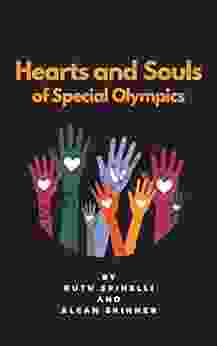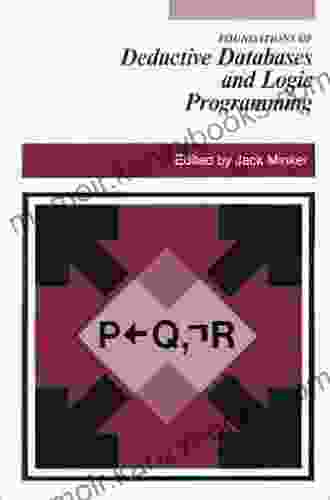Foundations of Deductive Databases and Logic Programming: An Exploratory Journey into Knowledge Representation and Reasoning

In the realm of artificial intelligence, the quest for representing and reasoning about knowledge has led to the development of two closely intertwined disciplines: deductive databases and logic programming. These disciplines provide powerful tools for managing, querying, and manipulating logical information, enabling the creation of intelligent systems capable of solving complex problems. This article delves into the foundational principles and applications of deductive databases and logic programming, shedding light on their intricate connection and transformative impact on the field of knowledge representation.
Deductive Databases: A Paradigm for Logical Data Management
Deductive databases extend traditional relational databases by incorporating logical rules, allowing for the representation and manipulation of complex relationships. These rules, known as "deductive rules," enable the inference of new facts from existing data, providing a more comprehensive and expressive representation of knowledge.
5 out of 5
| Language | : | English |
| File size | : | 43892 KB |
| Print length | : | 746 pages |
| Screen Reader | : | Supported |
A fundamental aspect of deductive databases is the concept of logical inference. Given a set of facts and deductive rules, a logical inference engine can derive new facts by applying the rules to the existing knowledge. This process, known as logical deduction, allows for the automated discovery of implicit relationships, enriching the overall knowledge base.
The declarative nature of deductive databases is a significant advantage. By expressing knowledge as logical rules, users can focus on specifying what they know, rather than how to compute it. This declarative approach simplifies knowledge engineering, making it easier to maintain and update the knowledge base.
Logic Programming: A Declarative Approach to Computation
Logic programming is a paradigm that combines the expressiveness of logic with the computational power of programming languages. Unlike traditional programming languages that adopt an imperative approach, logic programming uses a declarative approach, focusing on expressing what to compute rather than how to compute it.
The central concept in logic programming is the "Horn clause," a rule that consists of a single consequent (the head) and zero or more antecedents (the body). Using Horn clauses, logic programs define relationships between facts and can be executed using a logical inference engine.
The declarative nature of logic programming simplifies program development and reasoning about program behavior. Programmers can specify their knowledge as logical facts and rules, and the logic programming system automatically deduces the consequences. This approach promotes clarity and maintainability, especially in complex knowledge-intensive domains.
The Symbiotic Relationship between Deductive Databases and Logic Programming
The synergy between deductive databases and logic programming is undeniable. Deductive databases provide a framework for managing and querying logical information, while logic programming offers a language for expressing and executing logical rules. This symbiotic relationship enables the development of knowledge-based systems that can reason about complex knowledge.
The integration of deductive databases and logic programming allows for the definition of "active databases," which can automatically derive new facts and trigger actions based on the changes in the knowledge base. This capability opens up new possibilities for rule-based systems, enabling the creation of intelligent applications that respond dynamically to changes in their environment.
Applications of Deductive Databases and Logic Programming
The power of deductive databases and logic programming has found application in a wide range of domains, including:
1. Expert Systems: Deductive databases and logic programming provide a natural framework for representing and reasoning with expert knowledge, enabling the development of expert systems that can emulate human expertise in specific problem domains.
2. Natural Language Processing: The logical representation of knowledge in deductive databases facilitates the development of natural language processing systems that can understand and generate human language.
3. Data Integration: Deductive databases can integrate data from multiple sources, allowing for the consolidation and querying of heterogeneous data.
4. Semantic Web: Logic programming plays a fundamental role in the Semantic Web, providing a formal framework for representing and reasoning about knowledge on the web.
The foundations of deductive databases and logic programming have laid the groundwork for a powerful paradigm in knowledge representation and reasoning. Deductive databases provide a logical framework for managing and querying complex knowledge, while logic programming offers a declarative language for expressing and executing logical rules. The symbiotic relationship between these disciplines enables the creation of intelligent systems that can reason about knowledge and solve complex problems.
As we continue to advance in the field of artificial intelligence, the principles of deductive databases and logic programming will remain essential for developing intelligent systems capable of understanding and reasoning about the world around us.
5 out of 5
| Language | : | English |
| File size | : | 43892 KB |
| Print length | : | 746 pages |
| Screen Reader | : | Supported |
Do you want to contribute by writing guest posts on this blog?
Please contact us and send us a resume of previous articles that you have written.
 Book
Book Novel
Novel Page
Page Chapter
Chapter Text
Text Story
Story Genre
Genre Reader
Reader Library
Library Paperback
Paperback E-book
E-book Magazine
Magazine Newspaper
Newspaper Paragraph
Paragraph Sentence
Sentence Bookmark
Bookmark Shelf
Shelf Glossary
Glossary Bibliography
Bibliography Foreword
Foreword Preface
Preface Synopsis
Synopsis Annotation
Annotation Footnote
Footnote Manuscript
Manuscript Scroll
Scroll Codex
Codex Tome
Tome Bestseller
Bestseller Classics
Classics Library card
Library card Narrative
Narrative Biography
Biography Autobiography
Autobiography Memoir
Memoir Reference
Reference Encyclopedia
Encyclopedia Frank Murray
Frank Murray White Souls
White Souls Jenny Nimmo
Jenny Nimmo Tori Spelling
Tori Spelling Michelle Hastie
Michelle Hastie Ken Cohen
Ken Cohen Amelia Levin
Amelia Levin Amy Orr
Amy Orr Fred Plotkin
Fred Plotkin Clive Sinclaire
Clive Sinclaire Anat Talshir
Anat Talshir Amira Nowaira
Amira Nowaira Amy Kreydin
Amy Kreydin Amy Van Atta Slater
Amy Van Atta Slater Matt Abdoo
Matt Abdoo S Prakash
S Prakash Anca Toderic
Anca Toderic Anaki Queen
Anaki Queen Amy B Scher
Amy B Scher Edgar Cayce
Edgar Cayce
Light bulbAdvertise smarter! Our strategic ad space ensures maximum exposure. Reserve your spot today!

 Russell MitchellOh 1001 Homemade Greek Recipes: A Culinary Odyssey to the Heart of Greece
Russell MitchellOh 1001 Homemade Greek Recipes: A Culinary Odyssey to the Heart of Greece Harry HayesFollow ·10.3k
Harry HayesFollow ·10.3k Stephen FosterFollow ·6.6k
Stephen FosterFollow ·6.6k Willie BlairFollow ·14.7k
Willie BlairFollow ·14.7k Adrien BlairFollow ·14.2k
Adrien BlairFollow ·14.2k E.E. CummingsFollow ·7k
E.E. CummingsFollow ·7k Grant HayesFollow ·3.7k
Grant HayesFollow ·3.7k Pete BlairFollow ·14.5k
Pete BlairFollow ·14.5k Jesus MitchellFollow ·5k
Jesus MitchellFollow ·5k

 Miguel Nelson
Miguel NelsonFour Cookbooks In One: Recipes To Fight Cancer, Heart...
Looking for a healthy way...

 Marcus Bell
Marcus BellHearts and Souls: Exploring the Lives and Legacies of...
The Special Olympics movement has been a...

 Tony Carter
Tony CarterDiagnosed With Breast Cancer: Navigating Life After the...
A breast cancer diagnosis can be a...

 Joe Simmons
Joe SimmonsLiddypool: The Stories and Interviews – A Literary...
In the realm of...

 Jett Powell
Jett PowellBreakfast for Boneheads: 66 Breakfast Recipes for Lazy...
Are you tired of eating the...
5 out of 5
| Language | : | English |
| File size | : | 43892 KB |
| Print length | : | 746 pages |
| Screen Reader | : | Supported |












